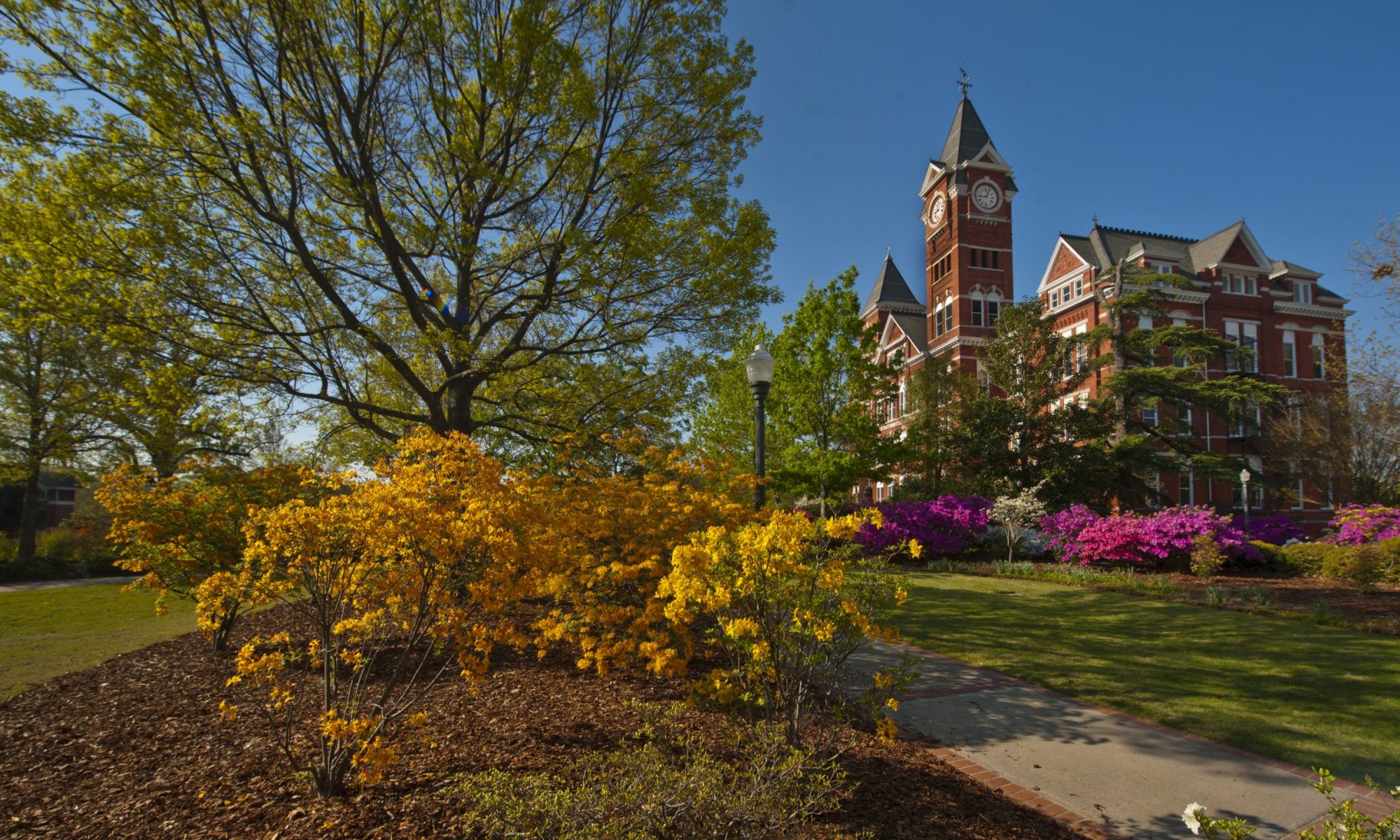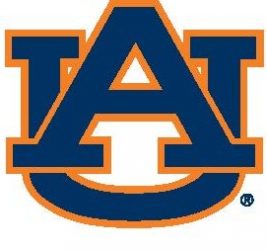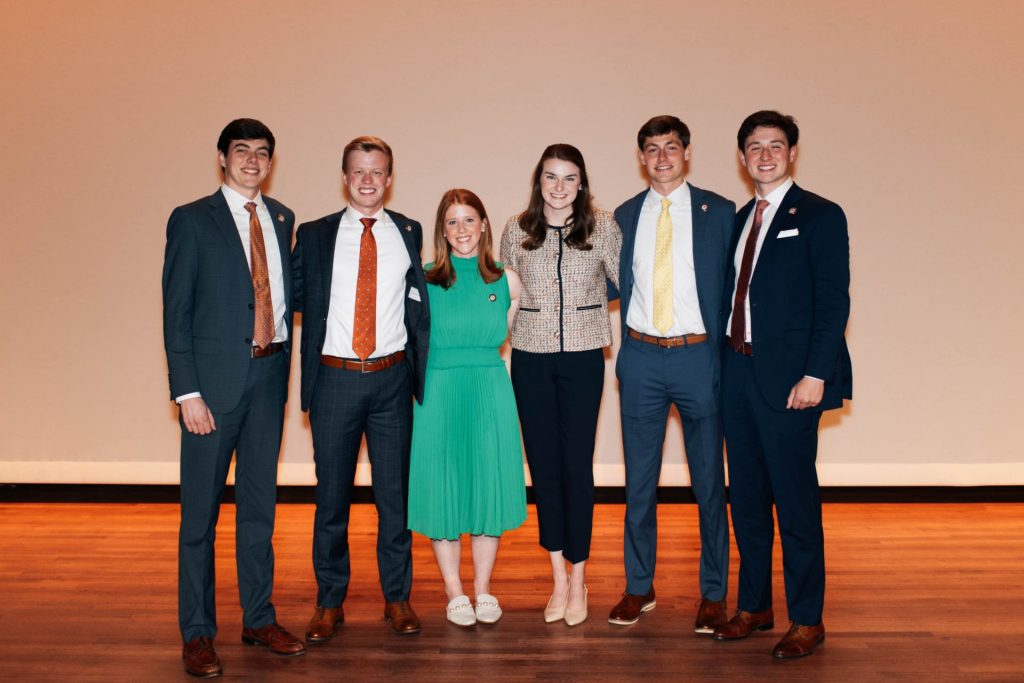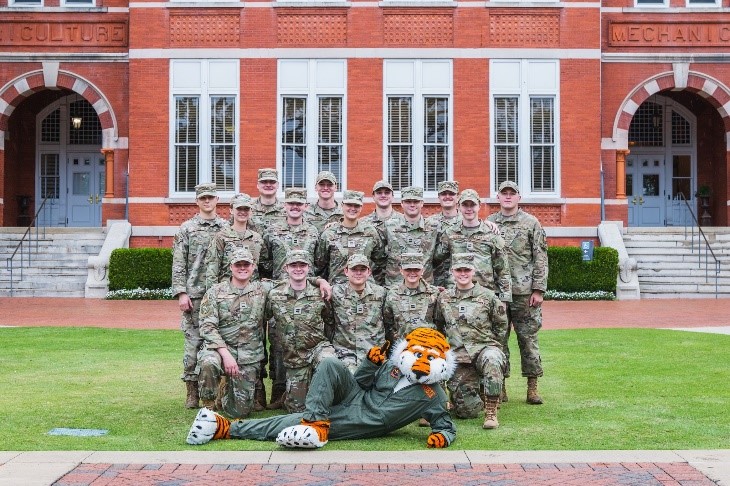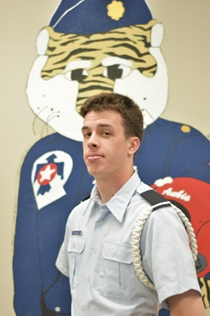By: Jackson Yanosky
Student Involvement – Student Writer
Getting involved on campus is a cornerstone of many students’ paths here at Auburn. Some students discover their path early on in their college careers, getting involved in organizations as freshmen or sophomores. Every student’s path is different, however, and many students find themselves getting involved in their junior or even senior year! It’s never too late to discover your path at Auburn.

Ian Maurelli is one student whose path highlights the way that Auburn students can get involved later on in college. Ian transferred here his sophomore year and spent his first couple of semesters here adjusting to life in Auburn, but by the beginning of his junior year he knew he wanted to get involved.
“Of course, that led me to the Student Government Association (SGA),” he tells me, “and I was lucky enough to get elected as Chief Justice, so I served from 2023-2024.” The SGA’s Chief Justice presides over all hearings and meetings of the judicial court.
“It was great work,” he describes. “I got to lead the student courts and make decisions. I got to really have a hand in what goes on at our university.”
Aside from the SGA, Ian wanted to get involved in something social, something active, and something academic. Luckily, after hearing about some organizations he was interested in, he had learned about AUinvolve and used it to help him make his decisions.
“After searching on AUinvolve for more information, I found all that I needed to know: the dues, where they meet, the times they meet, and the commitments required by the club,” he says. AUinvolve led him to join the organizations he had been looking for, and he joined the Swim club, the Gender and Sexuality Alliance, and Pi Lambda Sigma to fulfill his goal of finding an active, social, and academic organization, respectively.

Another student who found their path later is Delaney Donovan. Delaney says that in her early time at Auburn, she was “focused on getting situated and understanding what college was about,” as many other students are. Later, in her junior year, she was able to find the organizations that were right for her.
“I just searched on AUinvolve and found things that interested me. I found organizations that worked for me and applied,” she tells me. This led her to join many groups on campus that changed her life at Auburn.
Delaney is now Vice President of the High School Leadership Conference, Director of Events for the Spanish Club, on the Event Planning committee in Pi Lambda Sigma, and Executive Editor for AU Law Review.
“[Getting involved] made me feel really good,” she says. “In a lot of my clubs I now have leadership positions, so I always tell everyone that if they need anything to reach out to me, and a lot of them do. I’ll go to campus and get coffee with them or do something with them. It makes me feel like I’m helping, and that makes me feel really good.”
Delaney and Ian’s paths exhibit how it’s never too late to find the organizations you want to join at Auburn, but another student exemplifies how continual hard work can lead to finally reaching the goals a student sets for themselves early on in their college career.
Paige Rosckes says that when she came to Auburn and went on her first tour, she knew from that moment that one of her dreams was to become a Student Recruiter. She also knew early on that she wanted to be in organizations like the SGA and Freshman forum.
“My freshman year, I think I went to four or five Cater callouts and got nothing,” she tells me. Although that experience could be discouraging, Paige stayed determined and never stopped reaching for her goals.
“From the Creed, ‘believing in hard work’ is something that I lead through every day,” she says. “I kept persevering and the first thing that I achieved was getting on the Dance Line. Once I became a part of that, I just kept loving Auburn even more and wanting to find ways to get plugged in.”
Keeping her dream of wanting to become a Student Recruiter, Paige went to one of the Involvement Ambassadors (IA) for help. With the help of one of IA’s best, Paige was able to prepare and learn more about what Student Recruiters do. She ended up applying to join the Involvement Ambassadors as well.
Just before her senior year, Paige achieved her goal and became a Student Recruiter! Along with now being an Involvement Ambassador, Paige uses her positions in campus organizations to help lead other students to discover their paths.
Ian, Delaney, and Paige’s stories exemplify how it is never too late to get involved, whether that means finding and joining organizations later in college or pursuing a goal continually over your student career. Knowing resources like AUinvolve and talking to people like the Involvement Ambassadors can lead any student to where they want to be at Auburn. So, whether you are a freshman or a senior, never think that you’re unable to find your place here at Auburn. There is always something waiting for you, you just have to find it!
